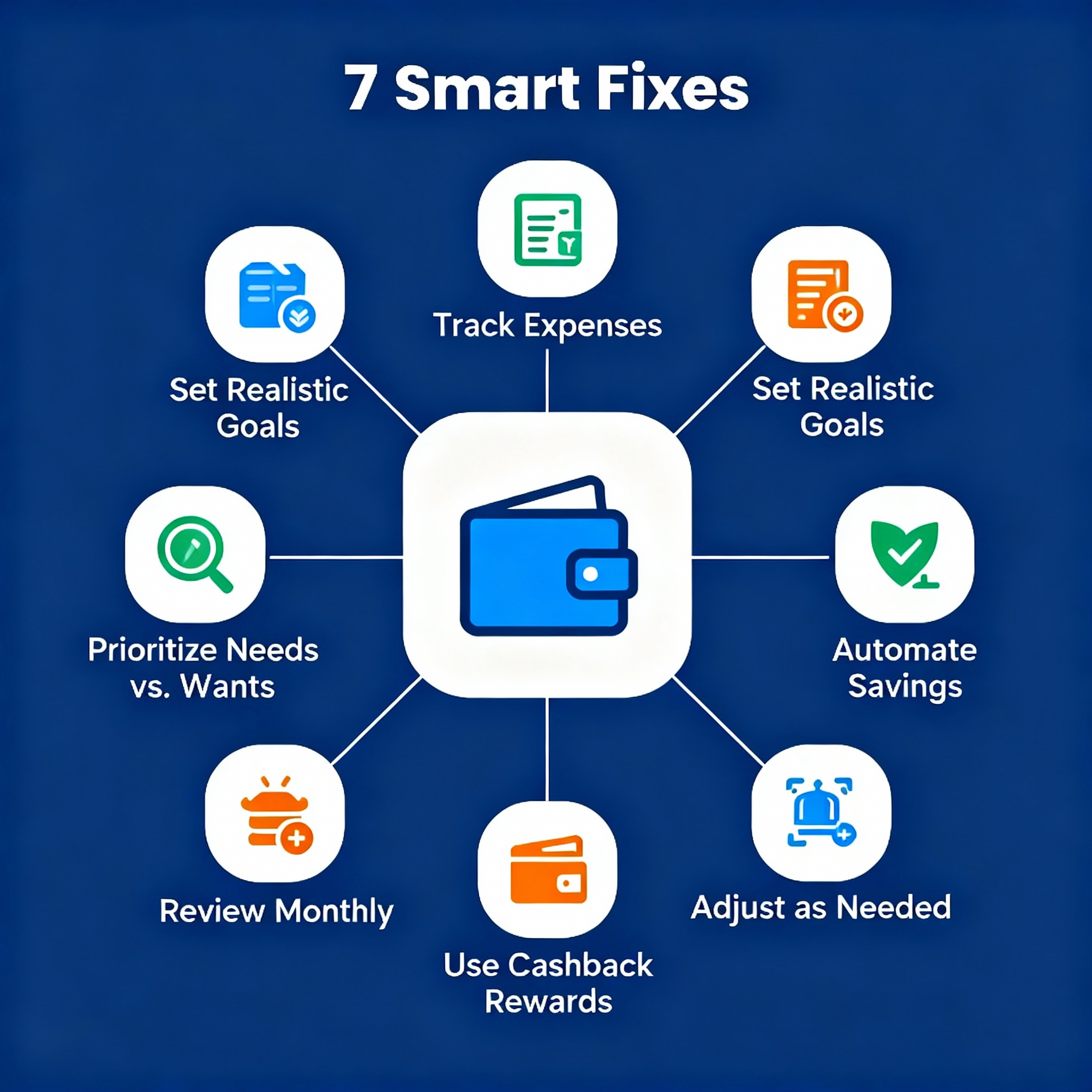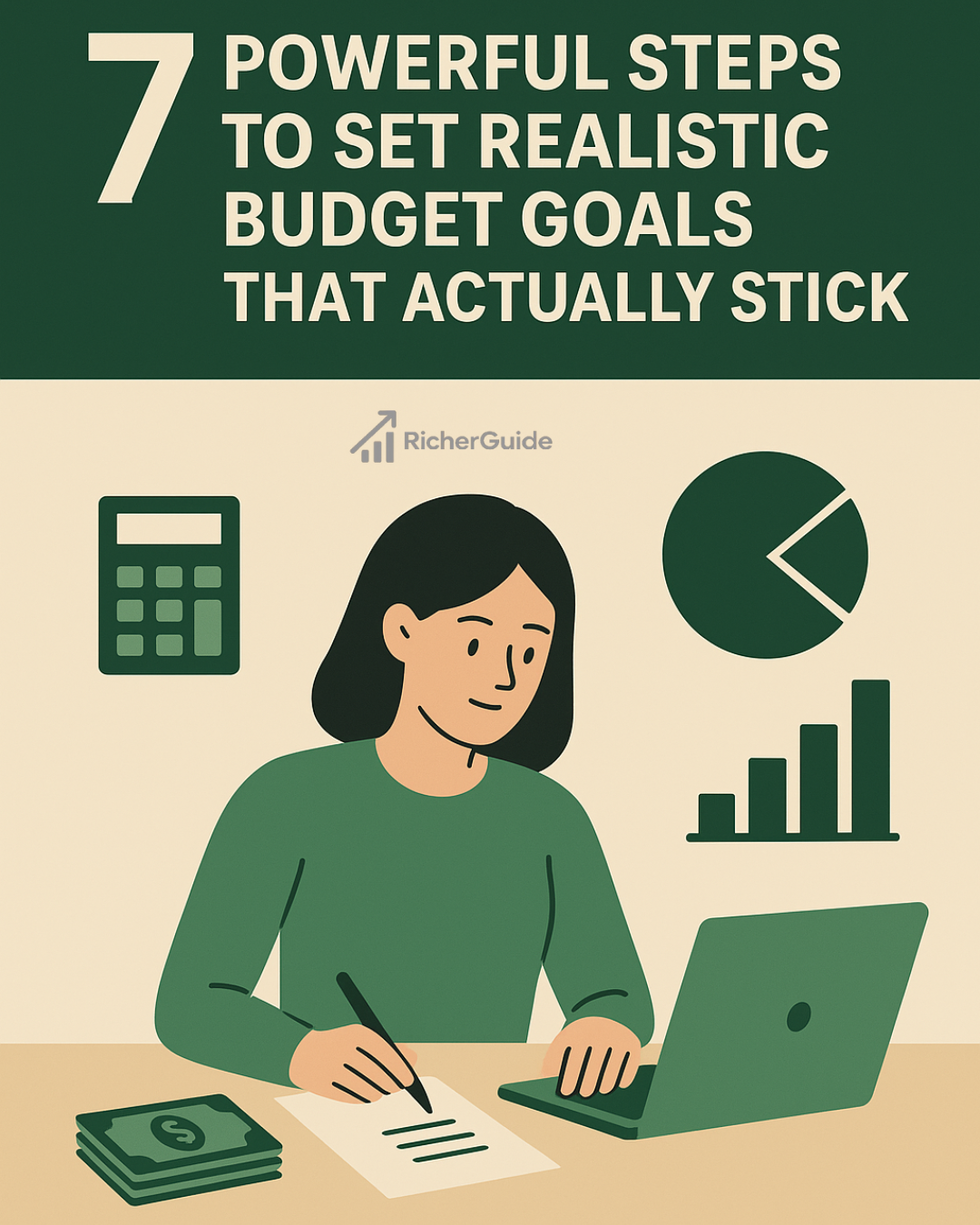Discover what budgeting means, why it matters in 2025, and learn a step-by-step guide with tips, examples, and templates to manage your money smartly.
Table of Contents
Why Budgeting is More Important Than Ever
2025 has brought new opportunities but also financial challenges—rising costs of living, shifting job markets, and lifestyle changes. In this environment, budgeting is no longer optional. It’s the foundation of financial stability, whether you’re a student, a working professional, or running a family.
Think of a budget as a roadmap for your money. It tells you where your money is going, helps you avoid debt, and makes space for savings and future goals. Without it, money slips away without you even realizing it.
What is Budgeting?
Budgeting is the simple process of planning your income and expenses. In other words, it’s about giving every rupee (or dollar) a purpose.
A budget is not about restrictions—it’s about freedom. Freedom to pay bills on time, save for emergencies, invest for the future, and still enjoy life without guilt.
Why Budgeting Matters in 2025
Here are the top reasons why budgeting is critical today:
- Rising Living Costs: Food, rent, and healthcare are more expensive than before.
- Uncertain Job Markets: Freelance and gig work are increasing, making income less predictable.
- Debt Trap: Easy loans and credit cards tempt people into overspending.
- Financial Goals: From buying a house to early retirement, budgeting is the first step.
- Peace of Mind: A budget reduces stress because you know exactly where your money is going.

Step-by-Step Guide to Creating a Budget
Step 1: Know Your Income
List down all your income sources—salary, freelance work, business profits, rental income, or side hustles.
Example:
- Salary: ₹50,000
- Freelance: ₹10,000
- Total Income: ₹60,000
Step 2: Track Your Expenses
Track both fixed expenses (rent, bills) and variable expenses (food, shopping). You can use apps like Wallet, Money Manager, or even a simple spreadsheet.
Example of Monthly Expenses Table:
| Expense Type | Example Items | Monthly Cost (₹) |
|---|---|---|
| Fixed Expenses | Rent, Loan EMI, Bills | 25,000 |
| Variable Expenses | Food, Shopping, Travel | 15,000 |
| Savings & Goals | Emergency Fund, SIPs | 10,000 |
| Fun & Lifestyle | Movies, Dining Out | 5,000 |
| Total | 55,000 |
Step 3: Choose a Budgeting Method
There are different ways to manage your money. Here are two popular methods:
- 50/30/20 Rule:
- 50% Needs (rent, groceries, bills)
- 30% Wants (shopping, travel, entertainment)
- 20% Savings & Debt Repayment
- Zero-Based Budgeting:
Every rupee is assigned a job. If you earn ₹60,000, you allocate the full ₹60,000 across needs, wants, and savings until nothing is left unplanned.
Step 4: Set Financial Goals
Make your goals SMART (Specific, Measurable, Achievable, Realistic, Time-bound).
Template:
| Goal | Amount Needed | Time Frame | Monthly Saving Needed |
|---|---|---|---|
| Emergency Fund | ₹1,20,000 | 12 months | ₹10,000 |
| Vacation Trip | ₹60,000 | 6 months | ₹10,000 |
| Retirement Corpus | ₹50,00,000 | 25 years | SIP ₹8,000/month |

Step 5: Monitor and Adjust
Budgets aren’t static. Review your budget every month. Adjust for changes in income, unexpected bills, or lifestyle shifts.
Real-Life Examples
- Ravi, a 25-year-old IT employee: He used the 50/30/20 method. Within a year, he saved enough for his emergency fund and started investing in SIPs.
- Sneha, a homemaker: She tracked household expenses with a simple notebook. By cutting unnecessary subscriptions, she saved ₹3,000 per month.
- Amit, a freelancer: With irregular income, Amit uses zero-based budgeting. He sets aside a fixed percentage for taxes, savings, and expenses.
Free Budgeting Template
You can create your own monthly budget using this simple structure:
Monthly Budget Template:
| Category | Planned (₹) | Actual (₹) | Difference (₹) |
|---|---|---|---|
| Income | |||
| Fixed Expenses | |||
| Variable Expenses | |||
| Savings/Investments | |||
| Lifestyle/Fun |
(Tip: Convert this into an Excel sheet or use Google Sheets for easy tracking.)
Final Thoughts
Budgeting in 2025 is about taking control of your money instead of letting it control you. It’s not about cutting out fun—it’s about making room for what truly matters. Whether you’re saving for a home, planning for retirement, or just trying to make ends meet, a budget is your strongest financial tool.
Start small. Track your expenses, set goals, and stay consistent. In a year, you’ll thank yourself for beginning today.


